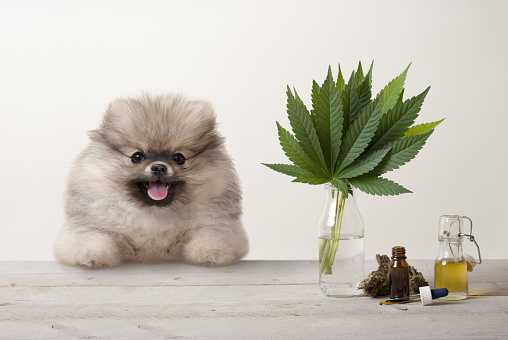When it comes to CBD for pets, there’s a lot of material going around the internet, and it’s tough to determine what’s real and what’s hyperbole, as with any pet wellness fad. You obviously want the best for your pet, so here’s all you need to know about CBD for pets. This natural material may not only be beneficial to people but also pets. Dogs, for instance, may have a variety of problems that CBD might help with.
CBD’s Potential Benefits For Pets
Because hemp-derived CBD for dogs is still relatively new in the veterinary world, the scientific jury is still out on what CBD can and cannot accomplish medically. Hemp-derived products operate in tandem with your dog or cat’s natural endocannabinoid system, which helps regulate many of the body’s activities. CBD products may benefit pets in the following ways, according to both human and veterinary literature:
- Anti-inflammatory properties (i.e., dermatitis, hypersensitivity)
- Pain alleviation
- Seizures and convulsions are less common.
- Support for the immune system (i.e., autoimmune disease, etc.)
- Supports the nervous system
- Support for the cardiovascular system
- Reduces anxiety
- Support for the digestive system
Anecdotal data also supports the usage of CBD products produced from hemp for dogs. According to a 2018 poll, pet owners approved hemp CBD treats and products due to reported improvements in various diseases, including pain, inflammation, anxiety, digestive difficulties, and sleep help. Using hemp-derived CBD oil enhanced the lives of dogs with osteoarthritis, according to a few peer-reviewed studies.
What Are Pets’ Reactions To CBD?

In a pet’s body, there are two types of cannabinoid receptors: CB1 and CB2. These receptors help to keep a pet’s immune and nervous systems in check, which can affect inflammation, discomfort, sensitivities, and mood. The receptors, endocannabinoids, and enzymes are the three essential components of the endocannabinoid system. Endocannabinoids are produced on demand and bind to receptors, which is particularly important during stress, sickness, or damage.
CBD operates similarly to endocannabinoids by binding to cannabinoid receptors. Dogs have the most significant density of CB1 receptors in the brain. In comparison to dogs, cats appear to have lesser absorption and probably faster excretion of CBD, according to a new study. As a result, cats may need it more frequently to maintain proper CBD levels in their blood. Each pet is unique, and not all dogs and cats will experience the same benefits from CBD products.
CBD Products Available On The Market

If you and your veterinarian decide to attempt CBD as a therapy for your pet, there are a few things to know while shopping for CBD.
- Look for organic products: If the CBD isn’t organic, it shouldn’t contain fungicides, pesticides, or solvents, at the very least.
- Don’t just shop for the lowest price: The higher the price, the higher the quality and purity. Toxic substances including herbicides, pesticides, and heavy metals might be included in a lower-cost option. Make sure your CBD doesn’t include any additives.
- Get the report: The producer must provide a certificate certifying the level of CBD in the product. Most CBD products only have minimum quantities of CBD in them. Make sure the product has little or no THC.
- CBD as a liquid: You can buy CBD-infused pet treats, but the ideal way to give it to your pet is in the form of an oil or tincture. You may modify your pet’s medication drop by drop this way.
Where To Buy CBD For Pets?
Because the FDA does not yet regulate CBD pet products, it is up to you to select high-quality items. Ensure that the CBD product has a COA and that a reputable laboratory performs third-party testing to assure the highest quality extracts. CBD products for pets are also available in big health food stores. Also, stay away from companies that don’t give information or utilize ambiguous labeling on their box.

